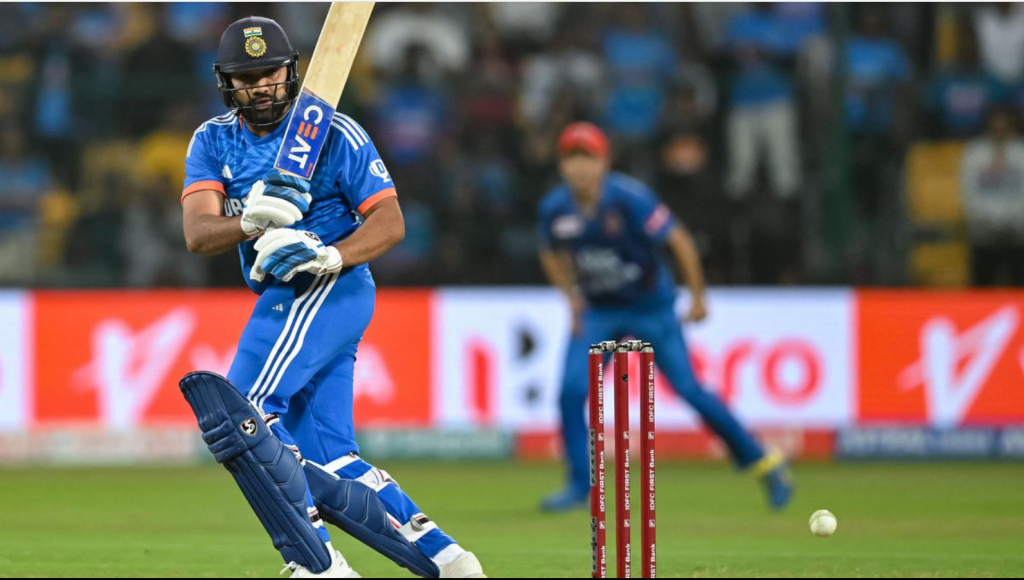The third and final T20I between India and Afghanistan witnessed some high-quality drama as two Super Overs were played out on Wednesday, January 17 at the M. Chinnaswamy Stadium in Bengaluru. India won the match as they defended 12 in the second super over. The decision to allow Rohit Sharma to bat in the second Super Over has sparked controversy.
The Indian skipper walked out to bat with Yashasvi Jaiswal, chasing 17 in the first super over. He slammed two sixes before the game came to the final delivery. India needed two runs with Yashasvi Jaiswal at the striker’s end. Rohit Sharma, who was at the opposite end, decided to bring in Rinku Singh. He retired himself out to allow Rinku to come out to the middle. India could manage only one run taking the match into the second Super Over.
Chaos ensued when Rohit Sharma came out to bat again. Afghanistan head coach Jonathan Trott was seen arguing with the match officials on the sidelines. The Indian skipper scored 11 runs in the second Super Over. India eventually won the match, defending 12 runs. However, the decision to allow Rohit Sharma to bat is being debated.
Speaking about the Rohit Sharma controversy, Parthiv Patel expressed,
“Rohit Sharma was retired out and yet he came out to bat in the second Super Over. He shouldn’t have because he was retired ‘out’ and not ‘hurt’. I think that’s something the umpires missed out there.”
What do the MCC playing conditions say?
25.4.2 – If a batter retires because of illness, injury or any other unavoidable cause, that batter is entitled to resume his/her innings. If for any reason this does not happen, that batter is to be recorded as ‘Retired – not out’.
25.4.3 – If a batter retires for any reason other than as in 25.4.2, the innings of that batter may be resumed only with the consent of the opposing captain. If for any reason his/her innings are not resumed, that batter is to be recorded as ‘Retired – out’.
TIED SUPER OVER – Any batsman dismissed in any previous Super Over shall be ineligible to bat in any subsequent Super Over.
According to the above-mentioned rules, if a batter is Retired Hurt, he/she will be allowed to resume the innings, However, if the batter has been declared retired out, he/she will only be able to bat with the consent of the opposing skipper. In Super Overs, any batter who has been dismissed in the previous super over is ineligible to bat again. In Rohit Sharma’s case, he was recorded as “retired out” which has sparked the controversy.
Get the latest cricket news here, like us on Facebook, and follow us on Twitter and Instagram for more such updates.

